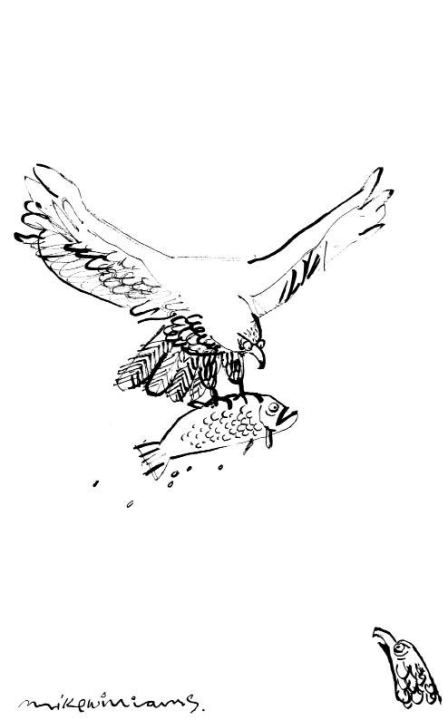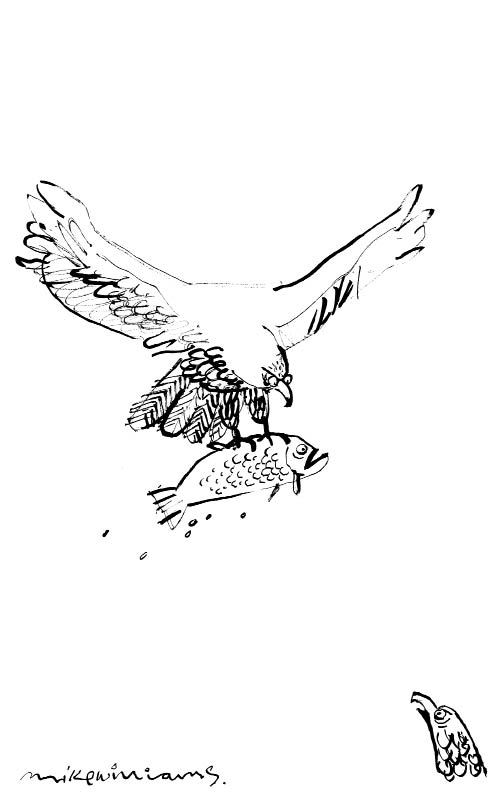What must it have been like for Allen Lane to wander into a bookshop in the 1940s and see the serried ranks of pale-blue, cerise, green, yellow, dark-blue and grey Penguins on display, knowing that he was responsible for all of them? His genius idea had in less than a decade transformed not just bookselling but also what everyone in Britain (and soon the English-speaking world) was reading. Penguins were cheap to buy, just 6d a throw, or the price of a packet of cigarettes, yet were literature of the highest quality and broadest range — from Maurois, Hemingway, Marx and Homer to Dorothy L. Sayers, Agatha Christie and Compton Mackenzie. Until 1935, such books had been available only in expensive hardbacks or on temporary loan from the library. Now even the poorly paid could just about afford to put up orange-box shelves and fill them with Penguins.
The story of Allen Lane’s Eureka moment is so well known that it’s become suspiciously clichéed. But the children’s author Michael Morpurgo retold it in delightfully fairytale fashion for Penguin, Puffin and the Paperback Revolution on Thursday morning (Radio 4), so it must be true. Lane was waiting for a train to take him back to London from Devon where he had been spending the weekend with his friend Agatha Christie (who else?). He needed something to read but could find nothing in the bookshop on Platform 1 at Exeter station but trashy paperbacks printed on nasty paper with garish covers illustrating dastardly crimes or lush romantic thrills. In a flash, he recognised a gap in the book market, and knew how to fill it, having joined his uncle’s publishing firm as a 16-year-old with no qualifications but a hard-headed business sense and a canny gift for sniffing out what will sell. A few months later the first ten Penguins were born, with that distinctively classy binding and design, and of course the Penguin logo, whose ‘dignified flippancy’ ensured that even Marxism Explained and Keeping Poultry and Rabbits on Scraps were turned into must-buy reads.
The programme was too short to really give us the full measure of the man. How, for instance, did Lane acquire the nous to think it worth buying Joyce’s Ulysses while T.S. Eliot at Faber & Faber was still ‘dithering’? It’s easier to understand what drove him in 1960 to take up the cause of D.H. Lawrence’s Lady Chatterley’s Lover. The controversy and obscenity trial ensured that over two and a half million copies were sold in the first year. Enid Blyton was asked to be a witness at the trial but refused, writing a letter in the most extraordinarily childish English: ‘I’d love to help Penguins but I don’t see how I can. My husband says “No” at once. The thought of me standing up in court advocating a book like that…I’m awfully sorry but I don’t see that I can go against my husband’s most definitive wishes in this.’
On The Archers we’re experiencing our own 2010 Lady Chatterley, with Alice Aldridge, daughter of the manor, running off to Las Vegas to marry the village blacksmith, Christopher Carter. It’s an excruciating class-ridden storyline (with sloppy sex attached) as Jennifer, mother of the bride, bewails the fact that she’s now related in law, if not by blood, to the local pigman, the beloved Neil, and his gruesome ex-prisoner wife Susan. I think we’re supposed to find it funny when Jennifer says things like, ‘It’s far too soon to start socialising with the Carters,’ as Susan sets herself up for a disastrous dinner party. But it’s straight out of the TV sitcoms of the 1970s. Surely we’ve moved on a bit in the past 40 years? Or maybe not. Did 13 years of New Labour really make not a whit of difference?







Comments